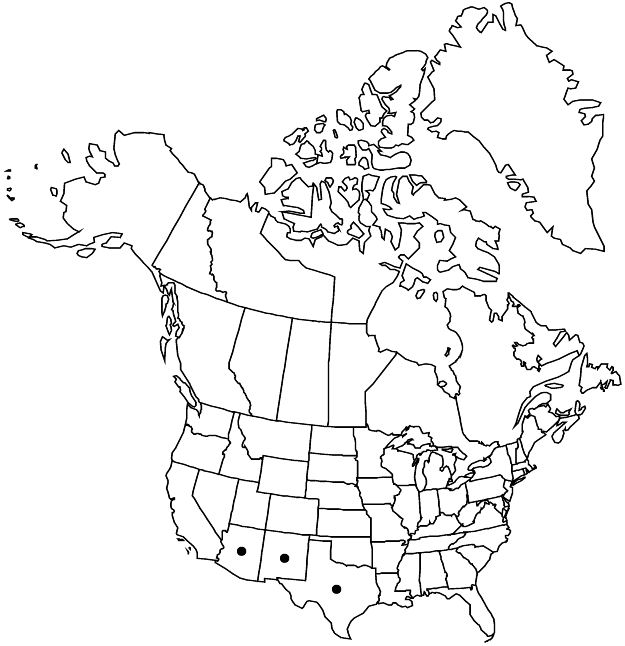Show Lower Taxa
Difference between revisions of "Apodanthera undulata"
Smithsonian Contr. Knowl. 5(6): 60. 1853.
Illustrated
Treatment appears in FNA Volume 6. Treatment on page 29.
RevisionBot (talk | contribs) m (Bot: Adding category Revision Pending) |
imported>Volume Importer |
||
| Line 45: | Line 45: | ||
|publication year=1853 | |publication year=1853 | ||
|special status=Illustrated | |special status=Illustrated | ||
| − | |source xml=https:// | + | |source xml=https://bitbucket.org/aafc-mbb/fna-data-curation/src/2e0870ddd59836b60bcf96646a41e87ea5a5943a/coarse_grained_fna_xml/V6/V6_44.xml |
|genus=Apodanthera | |genus=Apodanthera | ||
|species=Apodanthera undulata | |species=Apodanthera undulata | ||
}}<!-- | }}<!-- | ||
| − | --> | + | -->[[Category:Treatment]][[Category:Apodanthera]] |
| − | |||
| − | [[Category:Treatment]] | ||
| − | [[Category:Apodanthera | ||
| − | |||
Revision as of 23:21, 5 November 2020
Distribution

Ariz., N.Mex., Tex., Mexico.
Discussion
Varieties 2 (1 in the flora).
Apodanthera undulata in the flora area is recognized by its reniform, undulate-margined, and white-backed leaves and yellow petals. Variety australis McVaugh (A. aspera Cogniaux) differs in reduced vestiture and pistillate inflorescence; it occurs in Mexico (Aguascalientes, Guanajuato, Hidalgo, Jalisco, Michoacán, Nayarit, Oaxaca, Querétaro, San Luis Potosí, Zacatecas). According to McVaugh, the two varieties are allopatric.
Selected References
None.